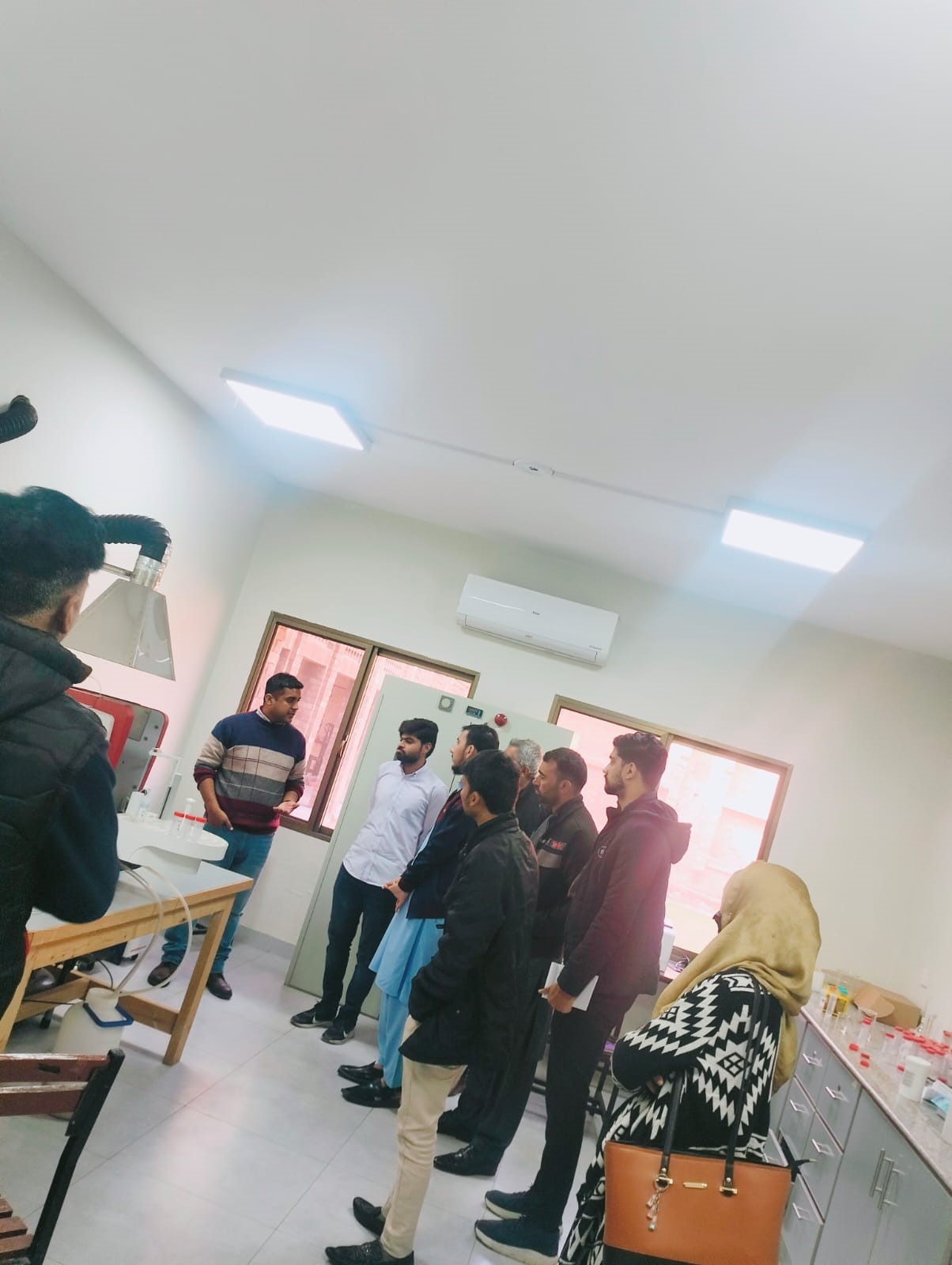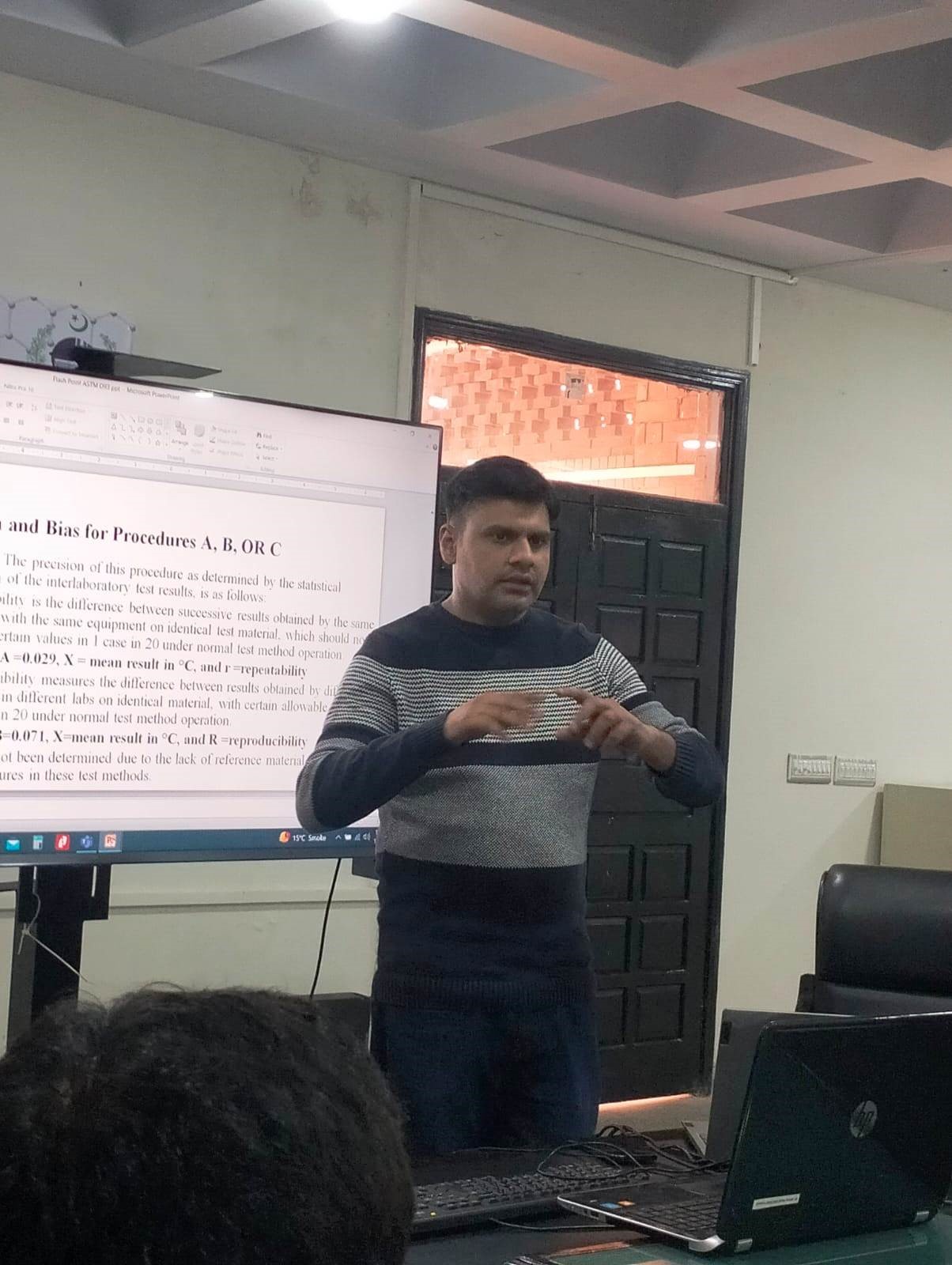Three-Days Training on Petroleum Testing and Analysis Led by Dr. Muhammad Azhar Hayat Nawaz
A three-day training session on petroleum testing and analysis was successfully conducted by Dr. Muhammad Azhar Hayat Nawaz (IRCBM) and Mr. Amir Abbas (ENOC, DUGAS) from December 5 to December 7, 2024, at the Interdisciplinary Research Centre in Biomedical Materials, COMSATS University Islamabad, Lahore Campus. The training aimed to provide practical experience and in-depth knowledge of petroleum testing methods to chemical engineering and chemistry graduates, covering techniques such as Atomic Absorption Spectroscopy (AAS) for trace metal analysis, UV-Visible Spectroscopy (UV-Vis) for component analysis. Dr. Azhar conducted detailed demonstrations on Atomic Absorption Spectroscopy (AAS) and UV-Vis Spectroscopy, focusing on their applications in the analysis of petroleum products. He provided hands-on training, showcasing methods for detecting trace metals and analyzing specific chemical components in petroleum products. The sessions were highly interactive, with Dr. Azhar addressing participant queries through Q&A discussions tailored to practical challenges in petroleum testing and quality assurance. Mr. Amir Abbas demonstrated laboratory techniques, emphasized real-world applications, and shared insights on challenges and innovations in petroleum and petrochemical analysis, drawing from his extensive industry experience. Mr. Amir Abbas demonstrated several critical procedures using ASTM-standardized methods. He covered the determination of the flash point of petroleum products using ASTM D-92, which is crucial for understanding the flammability of these materials. He explained the method for assessing total sulfur content with ASTM D-4294, emphasizing its importance in compliance with environmental regulations. The measurement of density, using ASTM D-4052, was demonstrated to illustrate its relevance in product classification and quality control. He also showed the process for determining the pour point with ASTM D-971 and the cloud point with ASTM D-2500, highlighting their significance in low-temperature performance of fuels. The training featured 15 contact hours of practical exercises and discussions, enabling participants to gain a comprehensive understanding of industry standards and enhancing their readiness for global job markets, particularly in the Middle East.

